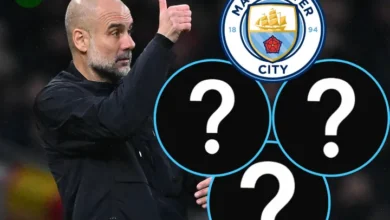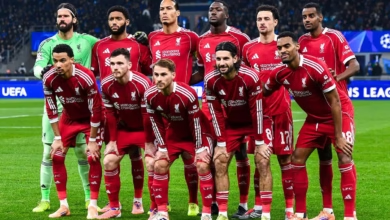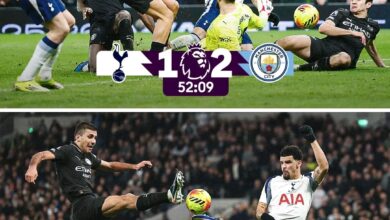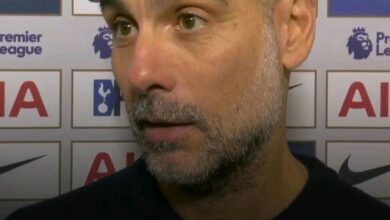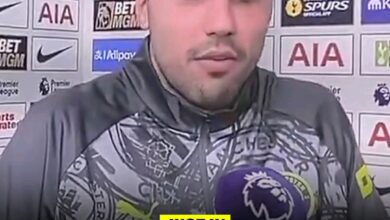Man City £1bn investment sends 115 charges hint to Liverpool and Premier League rivals
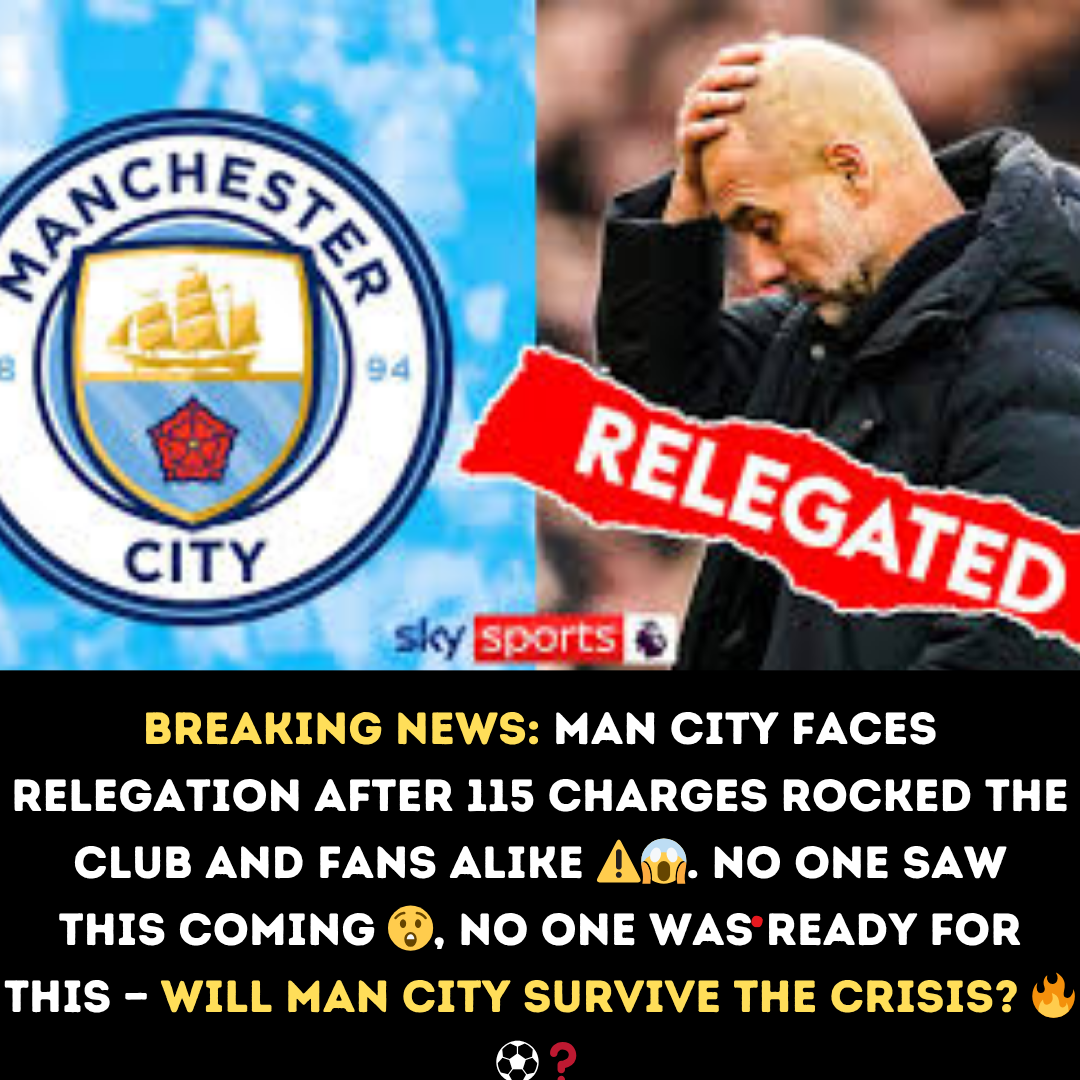
As the football world prepares for another thrilling season, Manchester City has emerged as the most active player in the summer transfer market, making headlines not just for their ambitious signings but for what these moves might signal about their ongoing legal battle with the Premier League. With over £1 billion invested across multiple fronts, the Citizens appear to be operating with the confidence of a club that believes it will emerge victorious from one of the most significant regulatory challenges in modern football history.
The timing of these investments is particularly striking. As Manchester City prepares to embark on their FIFA Club World Cup campaign—a tournament worth $1 billion to the winner—their summer spending spree has reached extraordinary levels. The club has confirmed four major signings in recent weeks, bringing their total investment to staggering heights and sending a clear message to rivals across the Premier League, particularly Liverpool, who continue to watch the proceedings with keen interest.
The Magnificent Four: City’s Latest Acquisitions
Manchester City’s summer recruitment drive has been nothing short of spectacular, with four high-profile additions that demonstrate both ambition and strategic planning. The crown jewel of these acquisitions is Rayan Cherki, the supremely talented midfielder who has completed his move from Lyon. Cherki, who had previously been on Liverpool’s radar, represents exactly the kind of creative force that could elevate City’s already formidable attacking options.
The French international brings a unique blend of technical ability and vision that has made him one of Europe’s most sought-after young talents. His arrival at the Etihad Stadium represents a significant coup for Pep Guardiola’s side, particularly given the competition for his signature from across the continent. The fact that City were able to secure Cherki’s services ahead of other interested parties, including their Premier League rivals, speaks volumes about their pulling power and financial muscle.
Alongside Cherki, City has also secured the services of Tijjani Reijnders from AC Milan, a move that adds considerable depth and quality to their midfield options. The Dutch international has impressed with his performances in Serie A and represents the kind of versatile player that Guardiola values highly. Reijnders’ ability to operate in multiple positions across the midfield makes him an ideal addition to City’s tactical setup.
The defensive reinforcement comes in the form of Rayan Ait-Nouri, the dynamic left-back who has completed his move from Wolverhampton Wanderers. Ait-Nouri’s pace and attacking instincts make him a perfect fit for Guardiola’s system, where full-backs are expected to contribute significantly to the team’s offensive play. His arrival provides healthy competition for existing options and ensures that City maintain their standards across all positions.
Completing the quartet is Marcus Bettinelli, the experienced goalkeeper who has joined from Chelsea. While perhaps the least glamorous of the four signings, Bettinelli’s arrival demonstrates City’s attention to detail in building squad depth across all areas of the team. His experience and professionalism make him an ideal addition to the goalkeeping department.
The combined cost of these four acquisitions has reached £110 million, a significant investment that follows an already substantial outlay in the January transfer window. This level of spending represents a clear statement of intent from the City hierarchy, one that suggests they remain committed to competing at the highest level regardless of the ongoing legal proceedings.
The Haaland Factor: A Nine-Year Commitment
Perhaps even more significant than the summer signings is the unprecedented nine-year contract extension handed to Erling Haaland. The Norwegian striker’s new deal, reportedly worth £247 million over its duration, represents one of the most substantial commitments in football history. This extraordinary investment in Haaland sends multiple messages to the football world.
Firstly, it demonstrates City’s absolute belief in Haaland as the cornerstone of their future success. The striker has already proven his worth with a remarkable goal-scoring record since arriving in Manchester, and this contract ensures he remains at the club during what should be his peak years. The length of the contract is particularly noteworthy, extending well beyond the typical duration of modern football contracts and showing City’s willingness to think long-term.
More importantly, in the context of the 115 charges, Haaland’s contract extension represents perhaps the clearest signal yet that City’s ownership believes they will emerge from their legal battle unscathed. It would be inconceivable for any football club to commit such resources to a single player if they genuinely believed they might face relegation or severe punishment in the near future.
The investment in Haaland also reflects City’s understanding of the modern football landscape, where securing and retaining the world’s best players requires increasingly substantial financial commitments. By acting decisively to secure Haaland’s long-term future, City have removed one potential source of uncertainty and speculation from their planning.
Historical Context: Building on January’s Foundation
The summer spending spree builds upon an already significant investment made during the January transfer window, when City spent £175 million on new acquisitions. That winter spending was motivated by both long-term strategic planning and the immediate need to address a concerning dip in form that threatened their title aspirations.
The January signings proved crucial in City’s eventual recovery and their successful navigation of the season’s challenges. This success has clearly emboldened the club’s hierarchy to continue investing heavily in the squad, creating a virtuous cycle where success justifies further investment, which in turn increases the likelihood of continued success.
The scale of investment across both transfer windows demonstrates City’s commitment to maintaining their position at the pinnacle of world football. The total expenditure on players alone, when combined with Haaland’s contract extension, approaches half a billion pounds in less than twelve months—a level of investment that few clubs worldwide could contemplate, let alone execute.
Infrastructure Investment: Beyond the Playing Squad
City’s commitment to excellence extends far beyond player acquisitions. The club is currently midway through a £300 million project to build a new stand on the north side of their stadium, an investment that will significantly increase capacity and enhance the matchday experience for supporters. This infrastructure development represents another substantial financial commitment that suggests confidence in the club’s long-term future.
Additionally, City has invested heavily in community projects, including the £450 million Co-op Live arena, which demonstrates their commitment to the broader Manchester community. These investments serve multiple purposes, enhancing the club’s local reputation while also creating additional revenue streams that can help support their ambitious sporting projects.
The total infrastructure investment, when combined with player acquisitions and contract extensions, approaches £1.3 billion—a staggering sum that represents one of the most significant periods of investment in the club’s history. This level of expenditure across multiple areas suggests a coordinated strategy designed to establish City as a dominant force for years to come.
The Legal Implications: Reading Between the Lines
The timing and scale of City’s investments have inevitably led to speculation about their confidence regarding the outcome of their legal battle with the Premier League. The 115+ charges against the club represent the most serious regulatory challenge any Premier League club has faced, with potential punishments ranging from financial penalties to points deductions or even relegation.
Legal experts have noted the apparent contradiction between City’s spending and the potential risks they face. As one legal source commented, the scale of investment would represent “a huge shock” if City’s owners genuinely believed they faced severe punishment. The comparison to “a convicted man buying a new Rolls-Royce on the morning he expected to be given a 10-year prison sentence” effectively captures the apparent inconsistency.
This analysis suggests that City’s ownership either possesses information that gives them confidence about the outcome, or they are displaying remarkable optimism in the face of uncertainty. Given the business acumen demonstrated by City’s ownership over many years, the former explanation seems more likely than the latter.
The club has consistently maintained its innocence throughout the process, arguing their case during a three-month hearing that concluded in December. Their confidence appears to be reflected not just in public statements but in their actions, with the summer spending spree representing perhaps the most tangible evidence of their belief in a favorable outcome.
Impact on Premier League Rivals
The implications of City’s investment strategy extend far beyond their own prospects, with rival clubs watching developments with keen interest. Liverpool, as the reigning Premier League champions, are particularly invested in the outcome of City’s case, as any potential punishment could significantly alter the competitive landscape.
The possibility of severe sanctions against City would create opportunities for other clubs to benefit, whether through points deductions that affect league standings or transfer embargoes that might limit City’s future competitiveness. Conversely, if City emerge from their legal battle without significant punishment, their current investment spree could establish them as an even more formidable opponent.
Other Premier League clubs are also monitoring the situation closely, as the precedent set by City’s case could have broader implications for financial regulation across the league. The outcome will likely influence how clubs approach their own financial planning and compliance with Premier League rules.
The uncertainty surrounding City’s case has created an unusual dynamic in the Premier League, where clubs must plan for multiple scenarios depending on how the regulatory process concludes. This uncertainty affects not just sporting competition but also commercial planning and strategic decision-making across the league.
The Club World Cup Factor
City’s preparation for the FIFA Club World Cup adds another dimension to their summer spending. The tournament, with its substantial prize money and prestige, represents an opportunity for the club to make a statement on the global stage. The signings of Cherki, Reijnders, Ait-Nouri, and Bettinelli can be seen as direct preparation for this challenge.
The Club World Cup also provides City with an opportunity to demonstrate their continued competitiveness while the legal proceedings continue. Success in the tournament would send a powerful message about the club’s resilience and quality, regardless of off-field challenges.
The timing of the tournament, coinciding with the ongoing legal uncertainty, creates an interesting parallel between City’s sporting ambitions and their regulatory challenges. Their approach to both situations appears to be characterized by the same confidence and determination to succeed.
Long-term Strategic Planning
Despite the immediate focus on the legal proceedings, City’s investment strategy suggests a long-term vision that extends well beyond the current season. The age profiles of their new signings indicate planning for sustained success over multiple years, while Haaland’s nine-year contract represents perhaps the ultimate long-term commitment.
This strategic approach reflects the club’s understanding that success in modern football requires consistent investment and careful planning. The signings made this summer address both immediate needs and future requirements, creating a squad capable of competing at the highest level for years to come.
The infrastructure investments running parallel to player acquisitions demonstrate a holistic approach to club development. By investing in stadium improvements and community projects alongside player recruitment, City are building a foundation for sustained success that extends beyond the playing field.
Financial Fair Play Considerations
The scale of City’s investment inevitably raises questions about Financial Fair Play compliance, particularly given their ongoing legal battle with the Premier League. However, the club’s willingness to continue spending suggests confidence in their ability to meet regulatory requirements.
City’s revenue streams have grown significantly in recent years, driven by commercial success, prize money from competitions, and increased matchday revenues. These growing revenues provide the foundation for their investment strategy, though critics continue to question the sustainability and legitimacy of their financial model.
The relationship between City’s spending and their revenue generation remains a key focus of regulatory scrutiny. The club’s ability to demonstrate legitimate revenue growth will be crucial in defending their position against the charges they face.
The Guardiola Influence
Pep Guardiola’s continued presence at the club provides stability and continuity that supports City’s investment strategy. The manager’s tactical expertise and reputation for developing players make him an invaluable asset in maximizing the potential of new signings.
Guardiola’s influence on transfer policy is evident in the profile of players being targeted. The focus on technically gifted, versatile players who can adapt to multiple tactical systems reflects the manager’s preferences and playing philosophy. This alignment between managerial vision and recruitment strategy increases the likelihood of successful integration for new signings.
The manager’s commitment to the club also provides reassurance to potential signings that they will be working under one of the world’s most respected coaches. This factor can be crucial in persuading top players to choose City over rival clubs.
Conclusion: A Statement of Intent
Manchester City’s summer investment spree represents more than just player recruitment; it constitutes a comprehensive statement of intent that addresses multiple audiences simultaneously. To rivals, it demonstrates continued ambition and competitiveness. To supporters, it shows commitment to success. To regulators, it suggests confidence in their legal position.
The scale and timing of these investments will be analyzed and debated extensively as the legal proceedings continue. Whether City’s confidence proves justified remains to be seen, but their actions suggest a club that believes it will emerge from current challenges stronger than ever.
As the new season approaches, City’s enhanced squad will be tested on the pitch, while their legal battle continues behind the scenes. The convergence of these storylines will define not just City’s immediate future but potentially reshape the landscape of English football for years to come.
The boldness of City’s approach—investing over £1 billion while facing serious regulatory charges—will be remembered as either a masterstroke of confidence or a remarkable gamble, depending on how their legal battle concludes. What is certain is that Manchester City has chosen to face their challenges head-on, backing their position with unprecedented investment in their sporting future.







